nothing here but the abattoir of genius
issue 234 - 1st October, 2023
CJW: We've got a shorter issue this time around, with Dan away for an important celebration. Still plenty to share, so let's get into it.
If you would like to support us, and are able to spare the money (which I know is only getting harder), you’ve got a couple of options:
Both give you access to the full bonus archive, as well as new bonuses as they are posted. Another thing you can do to help spread the word is forward this email to someone you think might enjoy it.
Marlee wrote the latest bonus - Emer, a piece of short-fiction inspired by a 'monster erotica' prompt.
The Team
Daniel Harvey (DCH) - Designer, writer, provocateur. Pro-guillotine tech critic. @dancharvey
Marlee Jane Ward (MJW) - is also Mia Walsch. Writer, visual artist, emerging hag, goth aunt.
Corey J. White (CJW) - Author, sin-eater, future sweetie-pie.
Lidia Zuin (LZ) - Journalist, MA in semiotics, and PhD in Arts. Sci-fi writer, futurology researcher and essayist. @lidiazuin
Climate Change & The Environment
CJW: Emergencies, Frameshifts and What They Tell Us About Our Place In The World - Spencer R. Scott (via Sentiers)
One of the larger projects of our modern society and economy is a project of dislocation and disconnection. The more we can untether people into individual units, the easier it is to mobilize them for maximal utility to the market. Most of us are not people of place, we are people of a market. Many move away from our hometowns, we follow opportunity to college or for a job to maximize our economic/career opportunities. Most people do not use their place-based identity as the prism they bend all decisions through, and most people do not integrate into the places they inhabit.
That’s no one’s fault, it was the logic of the system that pushed us into a stream laid out before us. The untethered, after all, are often the “winners” of our economic system, mobilizing to capture value anywhere it can be found regardless of invisible expense to others or the planet. However, the untethered are the losers of the next system, the system that will emerge from the logic of climate change. This new system that will require resilience, which like a spider’s web only claims it’s strength through an interwoven network of strong relationships.
Some really great musings here on ways to rethink our connections to place and the future in regards to changes we should (or perhaps will be forced) to make in response to climate change. Related to what I often like to say about making connections within your local area as those networks may prove increasingly important as time goes on.
//
CJW: How to Use AI to Talk to Whales—and Save Life on Earth - Camille Bromley at Wired
The American whaling industry in the mid-19th century, and then the global whaling industry in the following century, very nearly obliterated several species, resulting in one of the largest-ever losses of wild animal life caused by humans. In the 1960s, 700,000 whales were killed, marking the peak of cetacean death. Then, something remarkable happened: We heard whales sing. On a trip to Bermuda, the biologists Roger and Katy Payne met a US naval engineer named Frank Watlington, who gave them recordings he’d made of strange melodies captured deep underwater. For centuries, sailors had recounted tales of eerie songs that emanated from their boats’ wooden hulls, whether from monsters or sirens they didn’t know. Watlington thought the sounds were from humpback whales. Go save them, he told the Paynes. They did, by releasing an album, Songs of the Humpback Whale, that made these singing whales famous. The Save the Whales movement took off soon after. In 1972, the US passed the Marine Mammal Protection Act; in 1986, commercial whaling was banned by the International Whaling Commission. In barely two decades, whales had transformed in the public eye into cognitively complex and gentle giants of the sea.
This piece is mostly about contemporary efforts to use machine learning to open up lines of communication between humans and other species, which is really interesting and potentially important work. But I shared the above pull quote because it's something to remember - that making art and telling stories has a place even in the most serious discussions. It's not everything, but it's important.
//
"Scientists are scouring garbage sites around the world for bacteria, fungi and even insects that harbor enzymes that could be harnessed for breaking down various polymers. It’s early days, but if the efforts can be efficiently scaled-up, such biological recycling could put a dent in the plastic waste problem." - How to recycle plastic with enzymes - Sandy Ong at Knowable Magazine (via Sentiers)
Just the headlines:
NASA satellites reveal restoration power of beavers - Jeremy Hance at Mongabay
Geopolitics & Empire
Evil, Scary China Refuses To Passively Let Us Encircle It: Notes From The Edge Of The Narrative Matrix - Caitlin Johnstone - CJW: Some great commentary on media narratives regarding China, and also Ukraine.
Just the headlines:
Western sanctions failing: EU imports more Russian gas, China beats US tech war - Ben Norton at Geopolitical Economy Report
Canada Is Accusing India of a State-Sanctioned Assassination - David Moscrop at Jacobin
Science & Space
MJW: Covid hunters: the amateur sleuths tracking the virus and its variants by Linda Geddes at The Guardian
In common with other self-taught Covid sleuths, Hisner has no formal education in virology – just a knack for spotting patterns and the motivation to wade through reams of genetic data each day. Now with several years of experience under their belts, experts argue that such individuals have become a crucial component of global virus surveillance.
And their work has become ever more important, thanks to a drop in the number of genetic sequences being shared by many countries and a narrow focus on sequences from hospital patients. With at least 1,700 versions of Omicron co-circulating and continuing to evolve, the worry is that some of them may recombine to create a hybrid virus with unpredictable consequences.
//
Just the headlines:
Stunning Footage of Neurons Forming Inside a Chick Embryo Wins Nikon’s Small World in Motion - Colossal - CJW: Click through to see the animations.
Tech & Design
MJW: A Strange Sign of the Times by Julien Fell at ABC News
He’s just a dude on the web,” says Jane Andrew, an expert on data breaches at the University of Sydney. “I think it’s so shocking that this is where we find out information about ourselves. It’s just one guy facilitating this. It’s a critical global risk.” She says governments and law enforcement have, in general, left it to individuals to deal with the fallout from data breaches. “Actually fixing the problem requires significant investments and resources at the organisational level to actually try to make cybercrime something that’s more difficult to execute.” Without an effective global regulator, Professor Andrew says, a crucial part of the world’s cybersecurity infrastructure is left to rely on the goodwill of this one man on the Gold Coast.
CJW: If you spend a lot of time online you've probably checked Have I Been Pwned at least once (and probably found out that you have in fact been pwned). I had no idea it was run by one guy, and also that he was based out of Surfers Paradise, my old haunt as a wasted youth. This piece is lacking in technical/actual details on the operation itself, but it's still an interesting profile on the man behind it.
//
She Sacrificed Her Youth to Get the Tech Bros to Grow Up - Lexi Pandell at Wired - CJW: An interesting profile on Patricia Moore, the designer known for her work on accessibility design and on demonstrating the importance of these to others in the field.
Society & The Culture
CJW: Awkwardness as Radical Empathy - Adam Kotsko
Empathy isn’t something we turn on or off at will — it is something that sweeps over us, paralyzing us. It doesn’t depend on relateability in any narrow sense, because we can cringe in awkwardness when someone does something we have never done and genuinely would never do. It is a form of involuntary connection that happens to us, which we often choose to suppress or reject — often by suppressing or rejecting the individual who seems to be causing it.
Transcript of an interesting talk given by Adam Kotsko on awkwardness (both socially and culturally through the medium of cringe comedy) and empathy. It also ends on a gender note that I found relevant:
Presumably [using they/them pronouns for other people] will feel less awkward over time, but I would suggest that the awkward discomfort points to something real—namely the fact that none of us is fully at home in our gender identity, that even a cis identity is to some extent an external imposition on us. A world in which we all have to declare our pronouns, even if we consider them (as I do) “obvious,” and more than that, a world in which we can no longer safely assume we can identify people’s gender, is doubtless a more awkward world. But it is also a more honest and humane one — for all of us, not just those for whom the mismatch between their gender identity and self-concept has become an intolerable problem. Again, it is not a matter of benevolently deciding to help or include certain problematic individuals, but of rethinking how gender works for all of us.
Emphasis mine.
I rankle a little at "problematic individuals," but I'm choosing to read it in good faith as "an individual you might make a mistake in referring to. And then you’ll feel bad. Which is a problem for you."
//
CJW: The Stupidity of Genius - Rick Quinn (via Ganzeer)
The romance of genius can’t happen without someone doing the boring stuff: transporting equipment, taking out the trash, or crunching a budget.
What about even further behind the scenes?
Genius can’t flourish or sustain itself without the emotional (and practical) support systems of friends, family, or partners. Who is at home taking care of basic chores, not to mention—at the other end of the responsibility spectrum—raising kids, when the “genius” is devoting themselves entirely to their art?
An obvious point, but one that is often overlooked/forgotten/deliberately elided for the individualist notion of "genius".
//
The Octopus Abattoir Must be Stopped - Alex Skopic at Current Affairs - CJW: A really great read on one company's heinous fucking plans for octopus factory farming. Hard to grab a pull quote, but you should read the whole piece.
"I can tell you, with twenty-five years of expertise – that the narrative that colonialism brought only “positive changes” for Aboriginal people isn’t misguided; it is dangerous." - Dr Tracy Westerman at Cosmos.
Books
LZ - The Other Name, by Jon Fosse
This one is a weird one, I think and I think it is because it has absolutely no full stops or actual paragraphs and it’s basically a flux of thoughts of this guy named Asle, who was married to a woman called Ales, who knows a guy with his same name and has a best friend called Asleik, yes, and it is on purpose that I am writing my commentary like this, because that is precisely how the book is written, and if you have asthma you will probably feel like you are going to die, but I swear this is the kind of read that is painful for its format and delightful for its format, I think, and I think that is because Fosse can render a dreamy state or even put you in some kind of literary high that is unprecedented, yes, I cannot even imitate it because it’s so particular and it works very well to tell the story of this widower painter and the few people who surround him, most of them with similar names (which might mean nothing if you are not used to Scandinavian names) to intentionally make you confused and put you on a spiral, yes, so it feels like a time travel but in another way then Ted Chiang’s Arrival, I think, and it has the particularities of I’m thinking of ending things and Eternal Sunshine, yes, I know these are movies and not books, but somehow Fosse makes his book very cinematographic and experiential, so bear with him for the first pages and try to get to the end of it, yes, and I think you will have this tough love that you hate the experience and love it because it’s unique and it’s undoubtedly an unforgettable experience (for better or worse), I think
//
MJW: Playing Dead - A Journey Through the World of Death Fraud by Elizabeth Greenwood
Greenwood started fantasising about faking her own death when the reality of her student debt hit, and eventually her coping mechanism became a fun little obsession. The result is this book and the reader follows Greenwood through interviews with the people who fake their own deaths for insurance money, some Michael Jackson truthers who believe his OD was a fraud, and to Manila to explore the cottage death fraud industry. It's fascinating because we only get the perspective of those who are caught. The true winners of death fraud can never be known. They're dead.
Video
LZ: Laibach - The Engine of Survival
Laibach has recently released this video with a song that they have been playing on their current tour. I was lucky enough to see them in Copenhagen and the live performance was great. They are now touring with this Swedish singer who is super talented and with an incredible voice. Not only is the song beautiful and captivating, but the video is also very powerful despite the clear low budget.
Music
Just learned about them today and found out that they are from my city, Malmö. Love the female vocals and the dramatic atmosphere this duo conveys. I hope I get to see them live here, at some point.
The Self-Promotion
LZ: On cyberspirituality and the era of the paranormal AI
It’s been a long time since the last one that I wrote an article or essay, for what it's worth. But recently I learned about this thing called ghost box or spirit box and how several content creators are using new technologies (such as AI and LiDAR) to hunt ghosts. Paranormal research has always relied on technology and instruments that are also used in regular scientific research, so what’s now in vogue when it comes to trying to talk with the dead? Turns out there is even a generative image solution that allows spirits to paint a picture for you. Isn’t that lovely?
The Memes
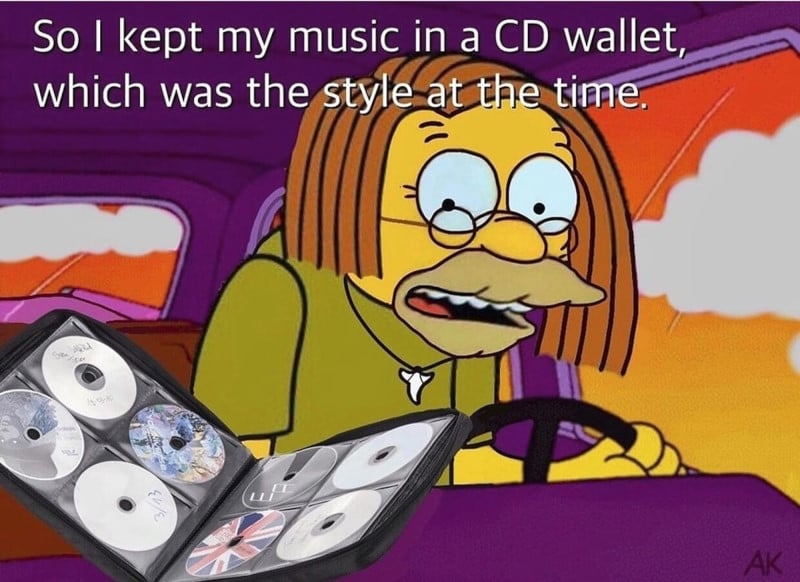
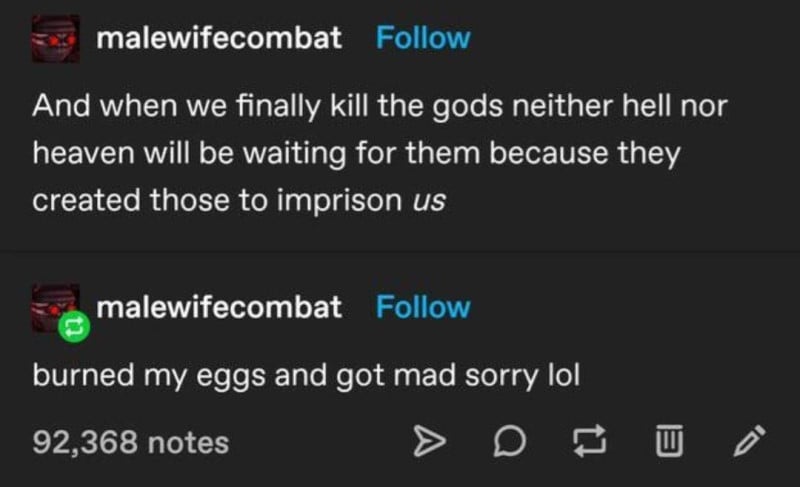
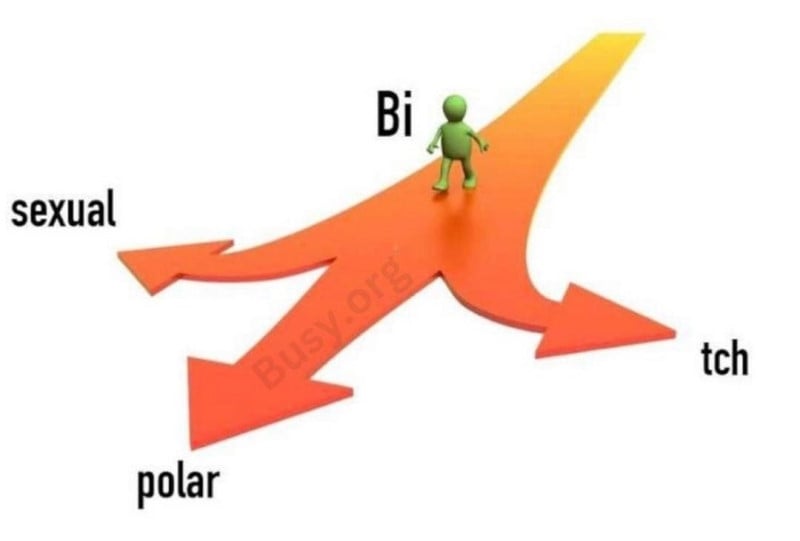
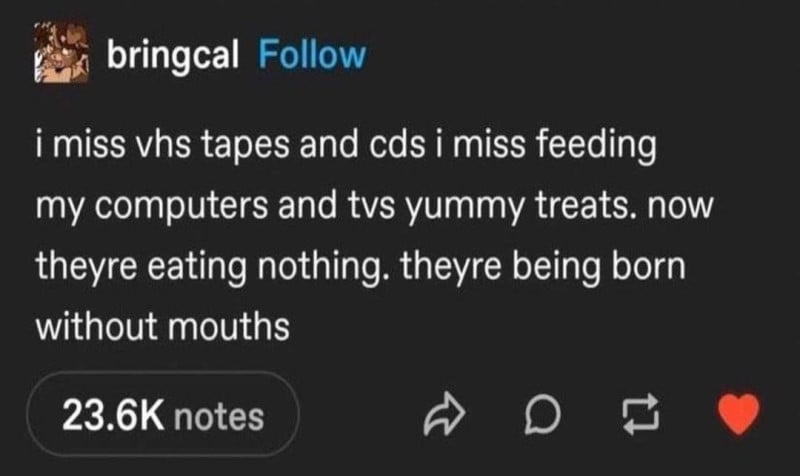
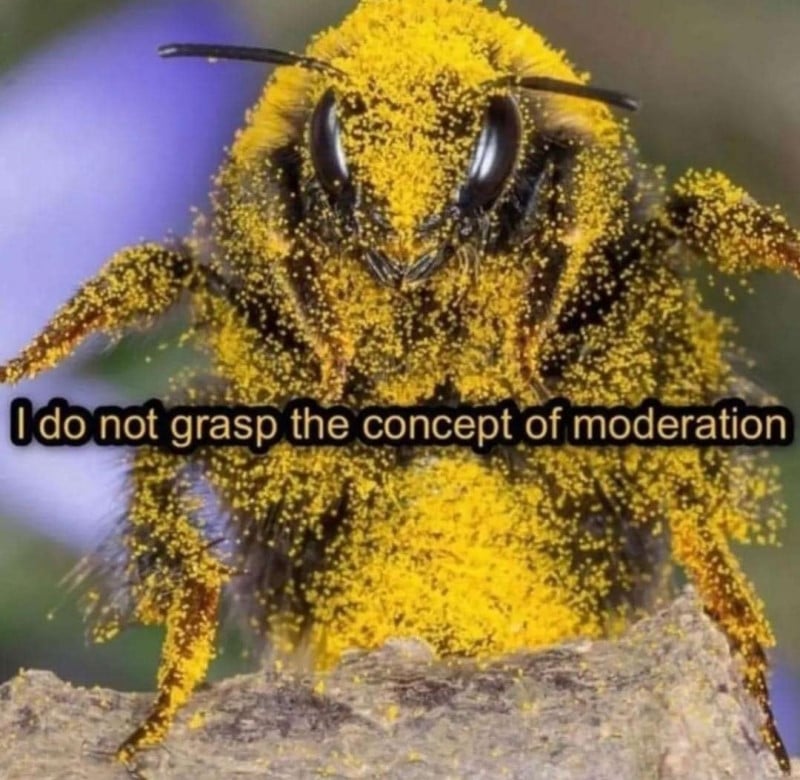
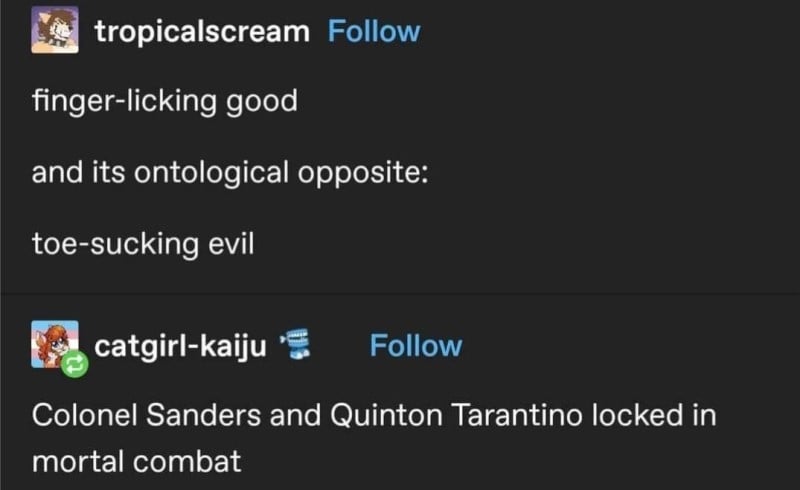
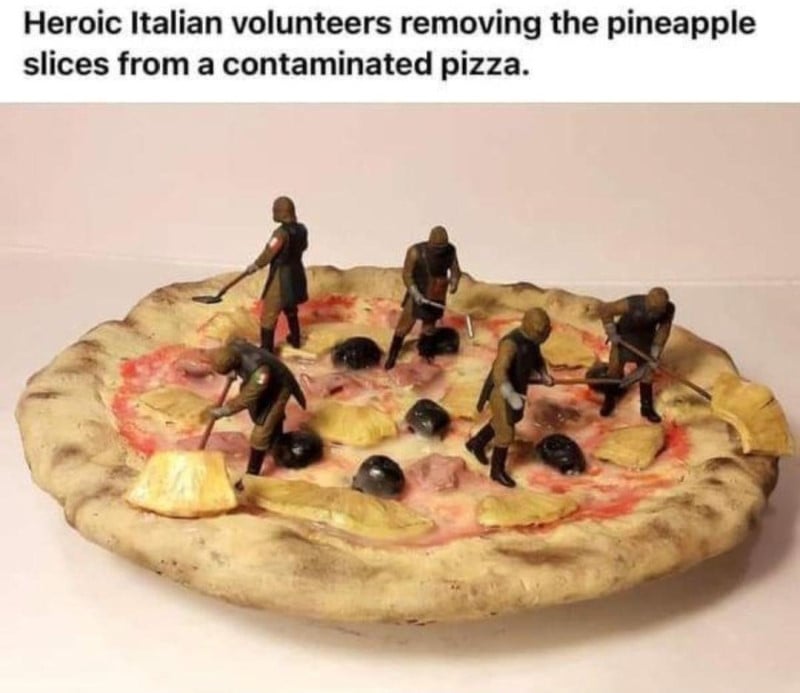
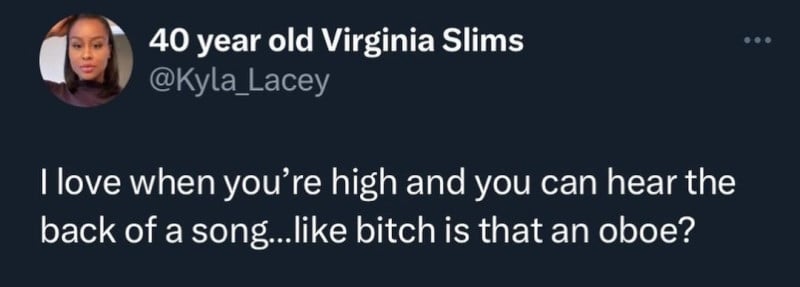
You just read issue #234 of Nothing Here. You can also browse the full archives of this newsletter.